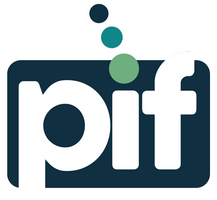Competition Law Guidelines
These guidelines apply to the Payments Innovation Forum ("PIF"), individual member organisations and all meetings and events held under the auspices of PIF.
PIF is a not-for-profit trade association that brings together businesses from across the payments and fintech sectors to discuss matters of industry-wide importance. Like other enterprises, trade associations must comply with competition law and any other equivalent provisions.
Trade associations play an important role in promoting their members' interests. However, if a trade association is used as a means to create or encourage an infringement of competition law, then both the association and its members can face serious consequences, including but not limited to fines and civil liberty damages.
Individuals in the UK can face being disqualified from acting as company directors as well as face prosecution under the criminal cartel offence. Businesses can also leave themselves exposed to action for damages from customers and competitors who can show they have been harmed by anti-competitive behaviour.
It is therefore the responsibility of PIF and each PIF member organisation to ensure compliance with the law.
The Guidelines
In order to avoid any kind of potential violation of competition law rules, members must not discuss or be involved in any of the following activities under any circumstances:
- the exchange of confidential or competitively sensitive information, such as business plans, marketing plans or future plans in or around PIF events, including in 'unofficial meetings' or at social events;
- price-fixing, including the coordination of price ranges, discounts or any other element of pricing including discussing pricing without actively fixing them;
- market partitioning such as the allocation of of customer groups or territories between competitors or bid rigging;
- joint negotiations, joint selling or (except after legal review) joint buying;
- agreements on investment levels or production quotas, or
- any agreement restricting competition, such as collective boycott, any arrangements to avoid direct competition, or joint action to exclude competitors or new market entrants
To be prohibited by competition law, an agreement need not be written down or binding; a verbal information exchange or an informal agreement can be an infringement. The same is true of a decision of an association of undertakings
What is competitively sensitive information?
Competitively sensitive information covers any non-public strategic information about a business’s commercial policy. It includes, but is not limited to, future pricing and output plans. Historical commercial information is far less likely to be competitively sensitive, particularly if individual businesses’ commercial activities cannot be identified.
Specific Rules for PIF
There are specific rules for PIF as a trade association.
PIF must:
- ensure that the admission criteria for PIF membership are transparent, proportionate, non-discriminatory and based upon objective standards;
- ensure members are familiar with these guidelines, and
- ensure that requirements for any quality assurance schemes PIF operates are fair, reasonable and available to all businesses that meet them
PIF must not, under any circumstances:
- have membership rules that prevent members from taking independent commercial decisions;
- establish irrelevant or arbitrary rules for the admission of new members;
- allow PIF to be a channel for, or otherwise facilitate, the sharing of competitively sensitive information in or around PIF events, including in 'unofficial meetings' or at social events held under the auspices of PIF;
- require members to provide PIF with competitively sensitive information, such as information about pricing and/or output intentions;
- adopt rules that restrict members' advertising and promotional practices, beyond ensuring such practices are legal, truthful and not misleading;
- issue formal or informal pricing or output recommendations to members, and
- develop membership rules or practices that restrict members from advertising their prices or discounts, soliciting for business or otherwise competing with members.
Things members should not do
- attend any PIF meeting or event without a written agenda or a clear indication of its purpose;
- attend any unscheduled gatherings that are held under the auspices of PIF unless you know they are for a bona fide purpose;
- accept written, non-public information or agree to the exchange of oral non-public information with members who market competing products or services;
- participate in market surveys or benchmarking exercises that allow access to individualised competitive information;
- engage in joint negotiations, joint sales or joint buying without legal advice
- exclude competitors or engage in collective boycotts
- reach understandings or agreements or even hold discussions (especially with a competitor) in anything relating to a commercially sensitive topic such as prices, credit terms and billing practices, production, sales, costs, future business plans, bids or matters relating to individual customers and suppliers.
Things members should do
- inform your company counsel and PIF of any approaches from any other member seeking to exchange non-public information or coordinate conduct on the market;
- immediately return any competitively sensitive information received from any other member, without keeping any copies in any format, and explain in writing why you do not wish to obtain such information;


